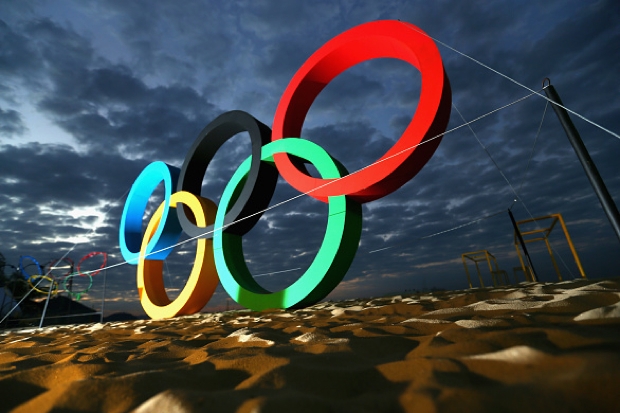When I was on local papers we waged an open war on Reigate and Banstead Borough Council, the body that could do no right. When they took action it was always wrong, when they didn’t it was criminally negligent. Local residents up in arms. Would you say it was hell living here? Must someone be killed before something is done about the Buckland bends?
We thought we were brave campaigners on the cutting edge of social justice: in truth we were following the instructions of the oldest chapter in journalism’s vast and endlessly well-thumbed book of clichés: good news is no news. So if it’s good it’s actually bad and if it’s bad it’s just awful.
And that is precisely the way the brave voices of the British press have been covering the build-up to the Olympic Games in Rio. First, the Games are taking place in a developing country, so we can slag the place off eternally for not being a lot like Reigate or that matter, Banstead. Brazil is a sitting duck. As the great Tom Lehrer once sang: ‘Pollution, Pollution, wear a gas mask and a veil. Then you can breathe – as long as you don’t inhale.’
As I understand it, the swimmers and the oarsmen and the canoeists will be operating in pools and lakes of raw sewage while everyone else will be engulfed in clouds of plague-bearing mosquitoes while the accommodation gently falls down all around them. Should they make the mistake of leaving their accommodation, they will be set on by armed bandits while the poor of Brazil are forced to pay for the pleasures of the wealthy rest of the world.
Still, we can always turn to the sports pages for relief… and read about drugs and politics and how the International Olympic Committee has betrayed the athletes and how Russian athletes stoned out of their minds on steroids and taking a perverse pride in their iniquitous country will win every medal that’s going.
It seems clear that anyone who thinks the Olympic Games might have some kind of point is a Panglossian fool: a person wilfully blind to the awful doom that will be coming upon us all in Rio on Friday. The Olympic Games are a disaster, a total waste of time and money and human effort. Global residents up in arms. Would you say the Games were hell?
Sure, I know, the Olympic Games is a flawed concept in a flawed world, the International Olympic Committee is prone to expediency rather than idealism, and the Rio Games, like all Games, are not without problems. But it’s not the end of the world, or even of the Olympic Games. That’s not the four horsemen of the apocalypse you can see: it’s just the dressage final.
The fact is that the Games will bring together 10,000 fabulous athletes: people who have devoted their lives to be as good as they possibly could be: and that can’t help but have its compelling side.
If you want to cut through the great morass of negativity, all you need is a few minutes chat with Dina Asher-Smith, the fastest British woman in history. She is also the swiftest counter-blast to knee-jerk cynicism that you could wish to meet. Just saying hello to her fills you with hope for a better world. All the same, she was feeling nervous when I did just that. About her end of term exams — she’s reading history at King’s College, London – and about her first Olympic Games. She’s 20.
‘My coach tells me, if you’re not nervous you’re dead. Like with the exams, you’re doing something you really care about. So it’s about making that nervousness work in you favour. In a race, you need to be keyed up for the start, but you must also do your best to be relaxed for the whole race. That’s the thing that everybody is trying to master.’
She was kit-carrier for Jessica Ennis in the Olympic Stadium on Super Saturday in 2012, the greatest night in the history of British sport, when British athletes won three golds in less than an hour. ‘I’ll never forget that night, how everybody was so happy,’ she said. ‘You just can’t prepare for that sort of overwhelming emotion. So you work hard at controlling the things you can control. I don’t worry about who’s on drugs and who isn’t – I just try and control the controllables.’
The implication of all this negative journalism is that any reaction to the Games other than black pessimism betrays a hopelessly trivial mind. And yes, of course sport is trivial, that’s rather the point. All the same, to watch someone seeking the highest level of excellence ever achieved is not an entirely small thing.
The fact that the Games have problems doesn’t mean that sporting spectacle is meaningless. Kohei Uchimura’s attempt to prove himself the greatest male gymnast that ever turned a somersault is an enthralling quest that will please the eye and thrill the heart. And then there’s good ol’ Usain Bolt, about to turn 30 and going for the triple-triple: he’s won three gold medals at both the last two Games and is trying to do it again, to show himself the greatest sprinter in history. Why miss that?
It was much the same vibes in London. Seven solid years of moaning and bitching, backbiting and whining were followed by the greatest party in the history of the human race… and once the last race was run, the moaning began again and it’s still going on.
No one would for an instant deny the fact that every Olympic Games has its problems. But it’s also true that the sixteen days of action that lie before us will bring us some fabulous sport, stuff that lifts the imagination and touches the soul. And if you think that’s a wholly bad thing, you probably haven’t got one.






Comments